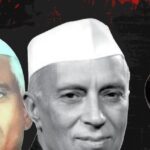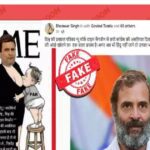Anil Sinha

The Central Government has taken steps towards holding Lok Sabha and Assembly elections simultaneously. Obviously, this has increased the political heat. The opposition is seeing this as Prime Minister Modi’s political efforts to remain in power. It is also being asked why the Prime Minister is doing this only when the Lok Sabha elections are approaching. He had expressed this opinion in 2018 and reiterated it thereafter, but no steps were taken in this direction then. The question arises whether this is the right time for this change?
difficulties in implementation
- Even if the apprehensions are kept aside, to implement the principle of ‘one country, one election’, the assembly elections of some states being held at the end of this year will have to be postponed and the tenure of those assemblies will have to be extended. Or the Lok Sabha elections to be held in 2024 will have to be held before the scheduled time.
- Even this will not make the matter complete. The tenures of the Assemblies are different and to conduct Lok Sabha elections with them, the state governments will have to be dismissed or their resignations will have to be obtained and the Assemblies will have to be dissolved.
- This can be easily done in BJP-ruled states, but in opposition-ruled states, Section 356 will have to be used and President’s rule imposed. Obviously, this entire exercise is not going to prove easy for the Central Government.
The ruling party has not given any other major argument in favor of ‘one country, one election’ except election expenditure. This election expenditure includes all the expenditure of human resources which are incurred in elections through the administrative machinery. Another argument is that development work comes to a halt due to the implementation of the Model Code of Conduct. But this is based on half-truths. The code of conduct prohibits taking only policy decisions. There are no restrictions regarding implementation of ongoing projects and welfare programmes.
- While raising the question of election expenditure and the use of administrative machinery, politicians forget that frequent elections are not as responsible for excessive expenditure as it is politics becoming increasingly corrupt and violent.
- More police force or bigger administrative machinery is required in elections because political parties are ready to go to any extent for power.
- Due to increase in the participation of criminals and black money holders in politics, government expenditure on elections has increased in the same proportion.
- As far as non-government expenditure is concerned, the culture of serving liquor, distributing clothes and money for votes has become an integral part of electoral politics. The donations received through electoral bonds are so opaque that it is not known whose money is being used by which party.

What has become necessary one country one election
The biggest issue is the damage caused to India’s parliamentary system and its federal structure by electing representatives for five years. The Constituent Assembly of India, after much discussion, rejected the presidential system under which the President and members of the legislature are elected for the entire term.
- In the parliamentary system, if no one gets majority in the House, re-election is necessary.
- The basic element of this system is that when the government loses the confidence of the majority, it should go to the people.
- The Constituent Assembly considered this system correct in view of the diversity of the country and making different states and communities partners in power.
- Due to this system, majoritarianism has been weakened in this diverse country.
- The restriction of not holding elections within five years means that the government that has lost majority remains in place and the central government rules the states under Section 356.
- How harmful this is for the federal structure can be seen in the recommendations of the Sarkaria Commission. The way governments are changed through party-change, the public will have no option but to tolerate these governments at any cost.
- The argument of retaining the Lok Sabha for full five years is also objectionable in the sense that in case any party does not have majority, there will have to be a provision for President’s rule, which is not in the Constitution.
We have seen Indira Gandhi’s attempts to remain in power by extending the tenure of the Lok Sabha in the form of emergency. We should remember the two great warriors of democracy – Dr. Ram Manohar Lohia and Jayaprakash Narayan. Dr. Lohia had said that living communities do not wait for five years and Jayaprakash Narayan had said that if a public representative loses the trust of the public, he should have the right to recall him. He wanted to enshrine the right to withdraw representatives in the Constitution.
question of federal structure
Anyway, this change will require several amendments to the Constitution. For this, amendments will have to be made in sections 83 and 85 and sections 172 and 174 related to the tenure of Parliament and its dissolution. For amendment of sections related to state assemblies, consent of more than half of the states will also have to be taken. It is difficult to estimate how prepared the government is for these complex processes. The question is also whether the basic structure of the Constitution can be changed? Remember, the federal structure is part of the basic structure of the Constitution.
Disclaimer: The views expressed above are the author’s own.






